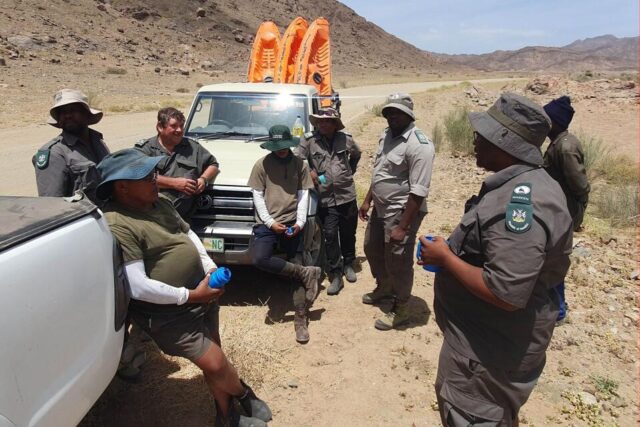In a historic alliance that underscores the power of international co-operation in conservation efforts, the field rangers of ǀAi-ǀAis/Richtersveld Transfrontier Park in the Northern Cape have forged a formidable partnership with their Namibian counterparts.
IN A HISTORIC alliance that underscores the power of international co-operation in conservation efforts, the field rangers of ǀAi-ǀAis/Richtersveld Transfrontier Park (ARTP) in the Northern Cape have forged a formidable partnership with their Namibian counterparts.
Together, they are embarking on regular joint river patrols along the Orange River, marking a significant achievement after a three-year hiatus induced by the Covid-19 pandemic.
The collaboration between South African National Parks (SANParks) and Namibian Rangers is a pivotal step in addressing the rampant illegal gillnet activities threatening the delicate ecosystem of the ARTP.
These clandestine illicit operations have wreaked havoc on fish populations, posing not only a significant threat to local businesses dependent on the river but also endangering the diverse array of species that call the riverine environment home.
During the inaugural joint patrol operation on November 15 last year, the combined efforts of South African and Namibian rangers yielded tangible results. Five suspects engaged in illegal fishing activities were apprehended, a testament to the effectiveness of cross-border collaboration in law enforcement.
The swift action by Namibian officials led to the suspects’ immediate custody and subsequent transportation to Aussenkehr for the imposition of fines. Moreover, a significant cache of illicit fishing gear, including nets, scissors, pangas (machetes), and floating devices (inner tubes), was seized, dealing a severe blow to the illicit operations that are threatening the biodiversity of the region.
This cross-border conservation collaboration serves as a beacon of solidarity in safeguarding our planet’s ecological treasures.
It exemplifies the transformative impact of international co-operation in tackling multifaceted environmental challenges and underscores the importance of collective action in preserving our natural heritage for future generations.
Looking ahead, the commitment to joint patrols and collaborative conservation efforts between South Africa and Namibia will be steadfastly maintained.
By leveraging this historic partnership, both countries can enhance their capacity to protect the ARTP and its trans-boundary ecosystem, ensuring its sustained prosperity for years to come.
This united front against poaching not only preserves biodiversity but also fosters economic stability and cultural heritage, reinforcing the significance of conservation as a shared responsibility transcending borders.








